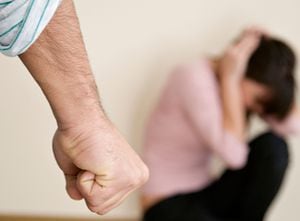Police make 40,000 domestic abuse referrals to social services in a year
West Midlands Police have made more than 40,000 referrals to social services for domestic abuse over the last year, official figures show.

The force sent 41,233 cases to the specialists over 2020/2021 – but children's charity NSPCC warned it could be the "tip of the iceberg".
Data from Her Majesty's Inspectorate of Constabulary and Fire and Rescue Services (HMICFRS) showed this was up from 34,733 in 2019/2020, an increase of almost 19 per cent.
Now NSPCC chiefs are calling on ministers to ensure every child gets the support they need after they were recognised as domestic abuse victims in law.
Anna Edmundson, NSPCC head of policy and public affairs, said: "Sadly, we know these figures are the tip of the iceberg as domestic abuse often goes unreported.
"Domestic abuse can derail a childhood and it is unacceptable that support to recover remains patchy across the country, and what is available risks being axed by cash-strapped councils.
"We urge Dominic Raab to use the Victim’s Law to address this and ensure young victims of domestic abuse have easy access to professional services within their community, so they can rebuild their lives no matter where they live."
Domestic abuse services needed in the community include therapeutic support services, independent domestic violence and abuse advisors, helplines and counselling services.
Children were officially recognised as victims of domestic abuse as part of the Domestic Abuse Act, with the NSPCC hoping it will make it more likely their needs are considered by professionals.
The change to the law came after campaigning by the NSPCC and other charities to reflect the impact that experiencing domestic abuse can have on children. However, the charity remains concerned that this alone will not ensure enough support is in place for children.
Local authorities currently have a statutory duty to provide accommodation-based support services, such as refuges, when families and their children need to leave their homes to escape domestic abuse.
But they do not have the same requirement to provide specialist, therapeutic services in the community for victims who remain at home after suffering domestic abuse.





